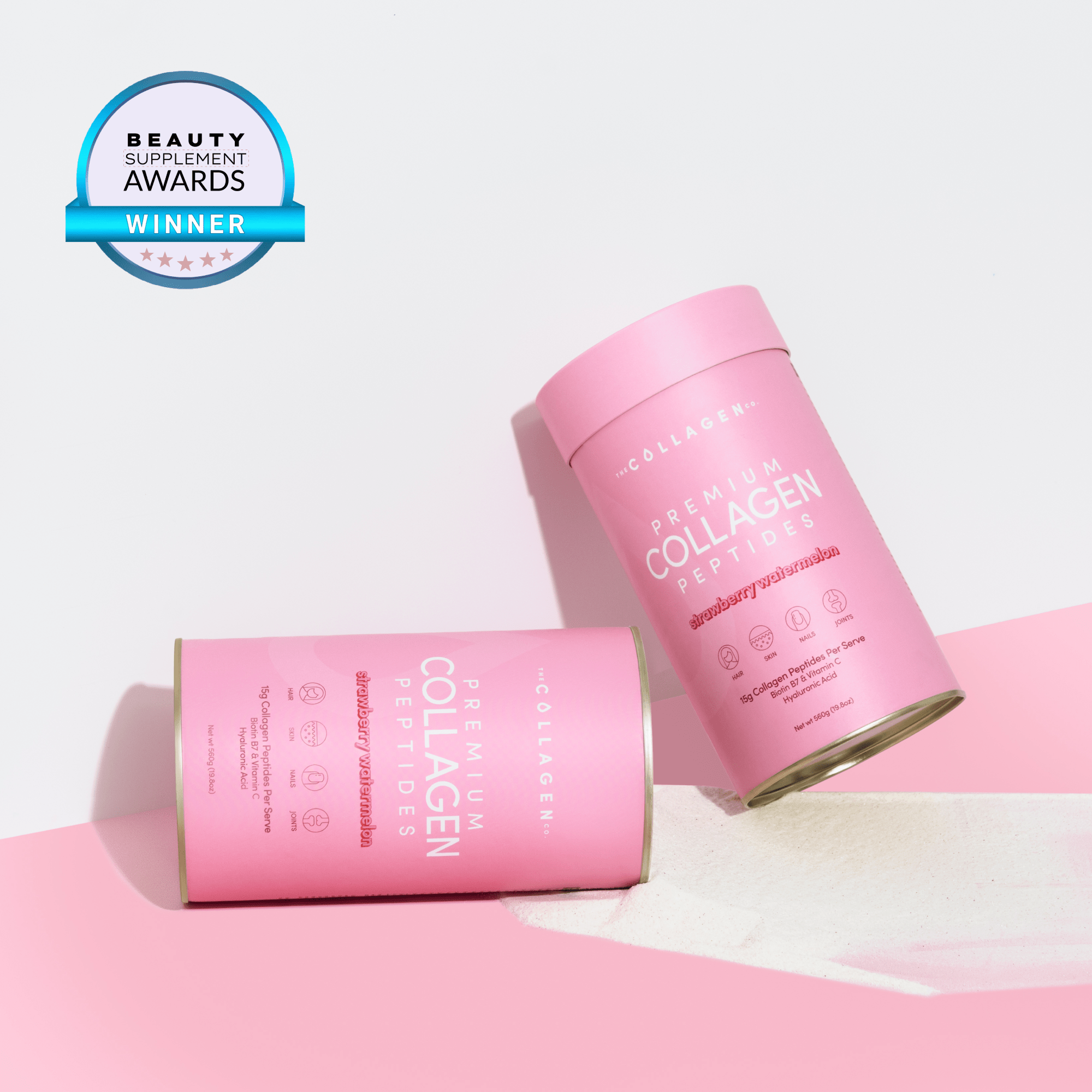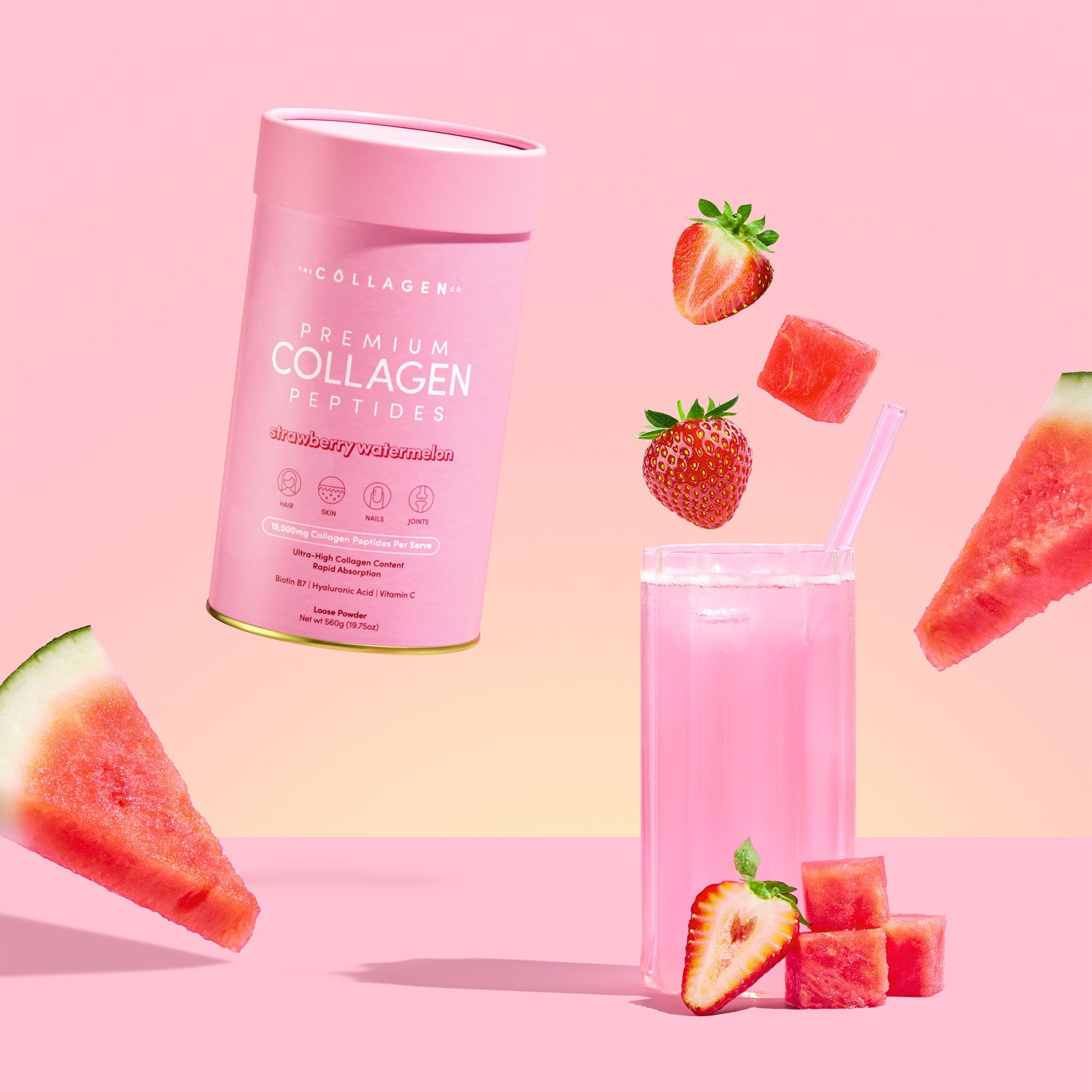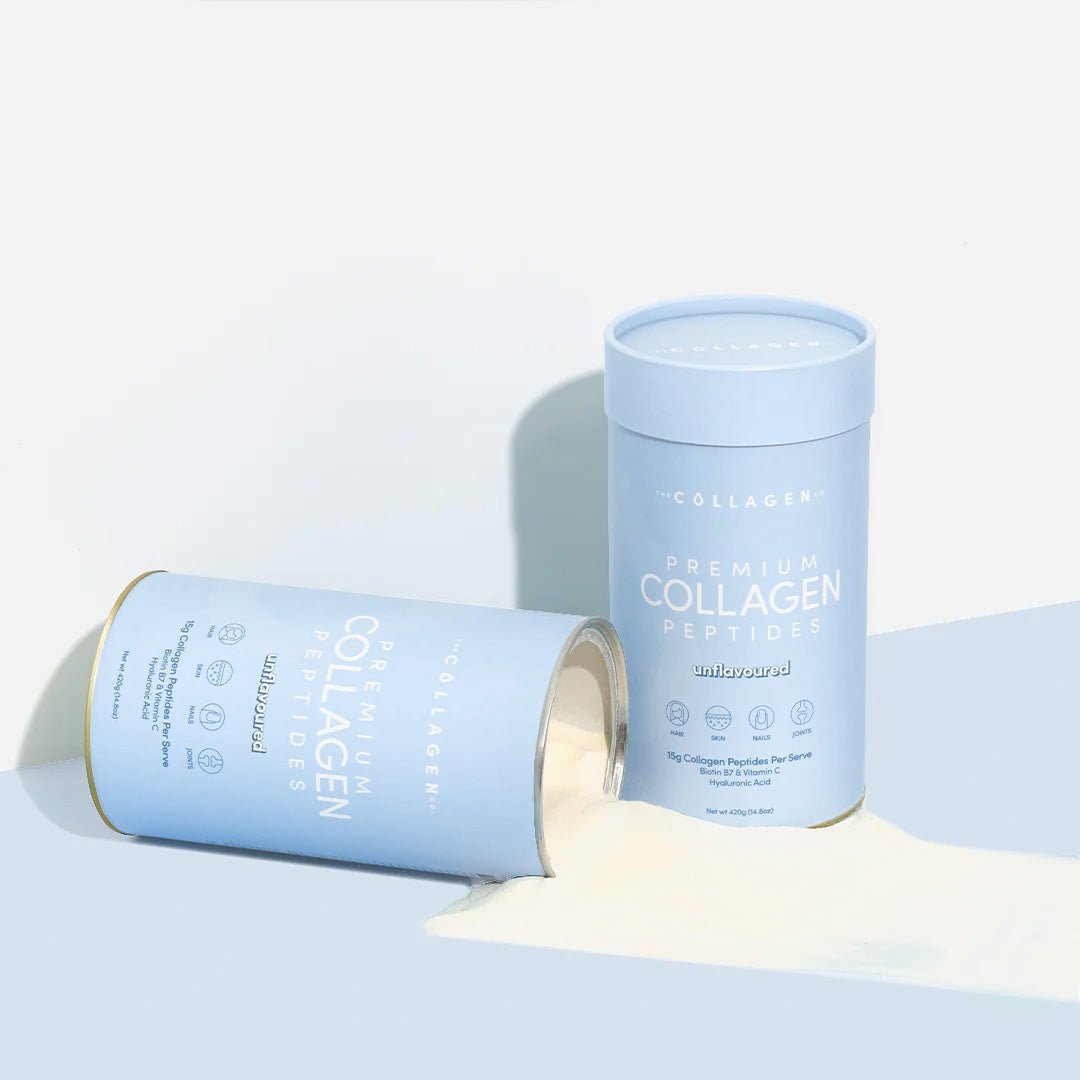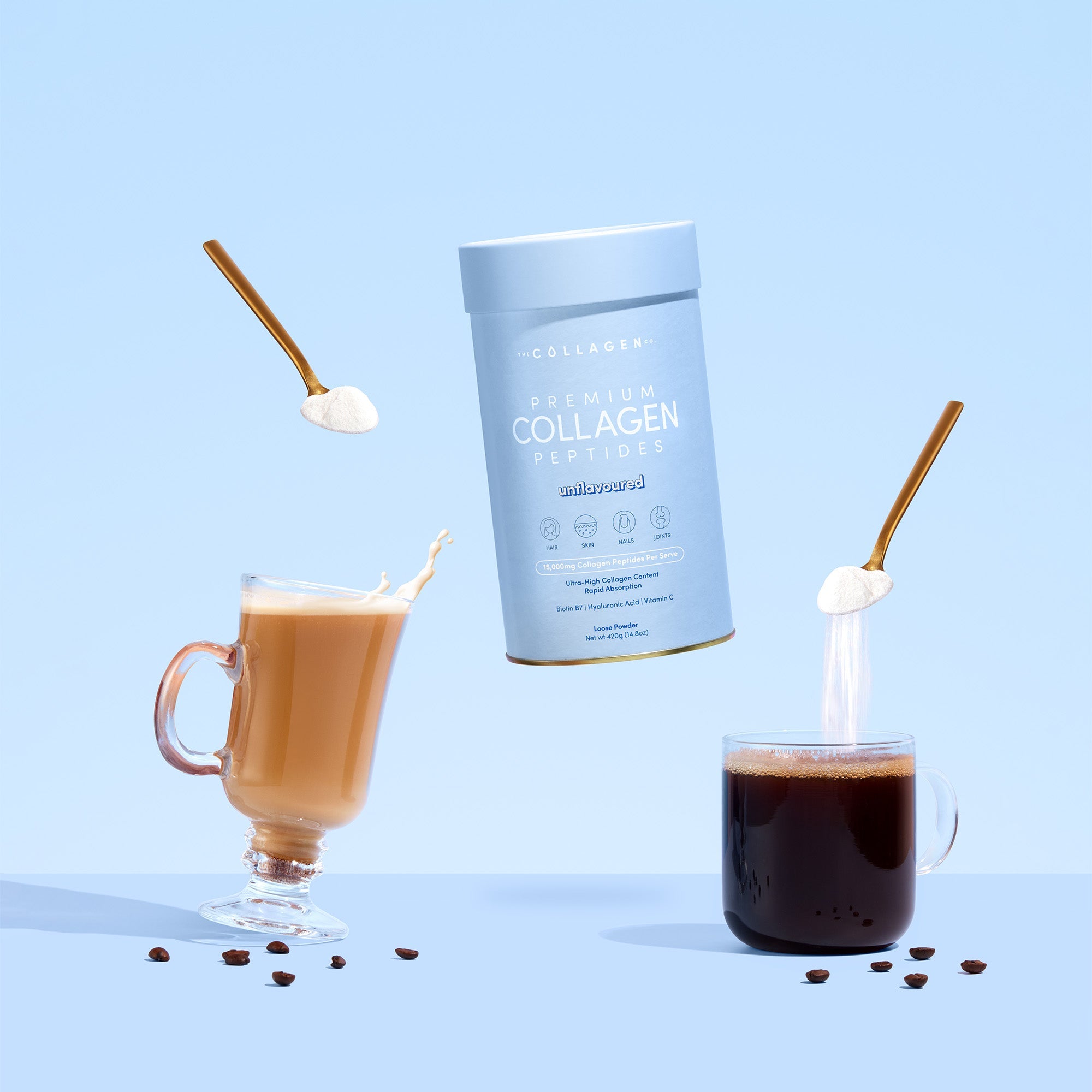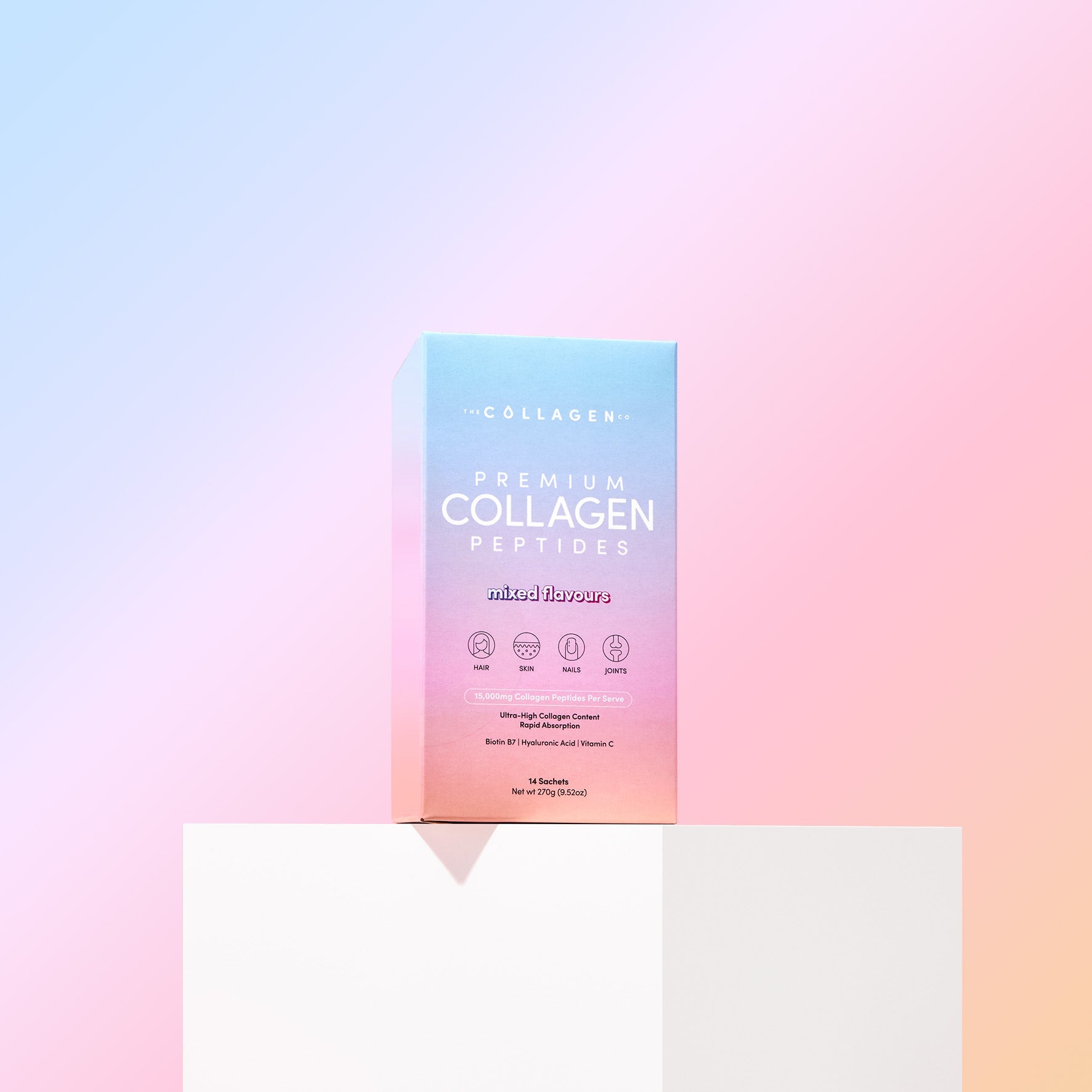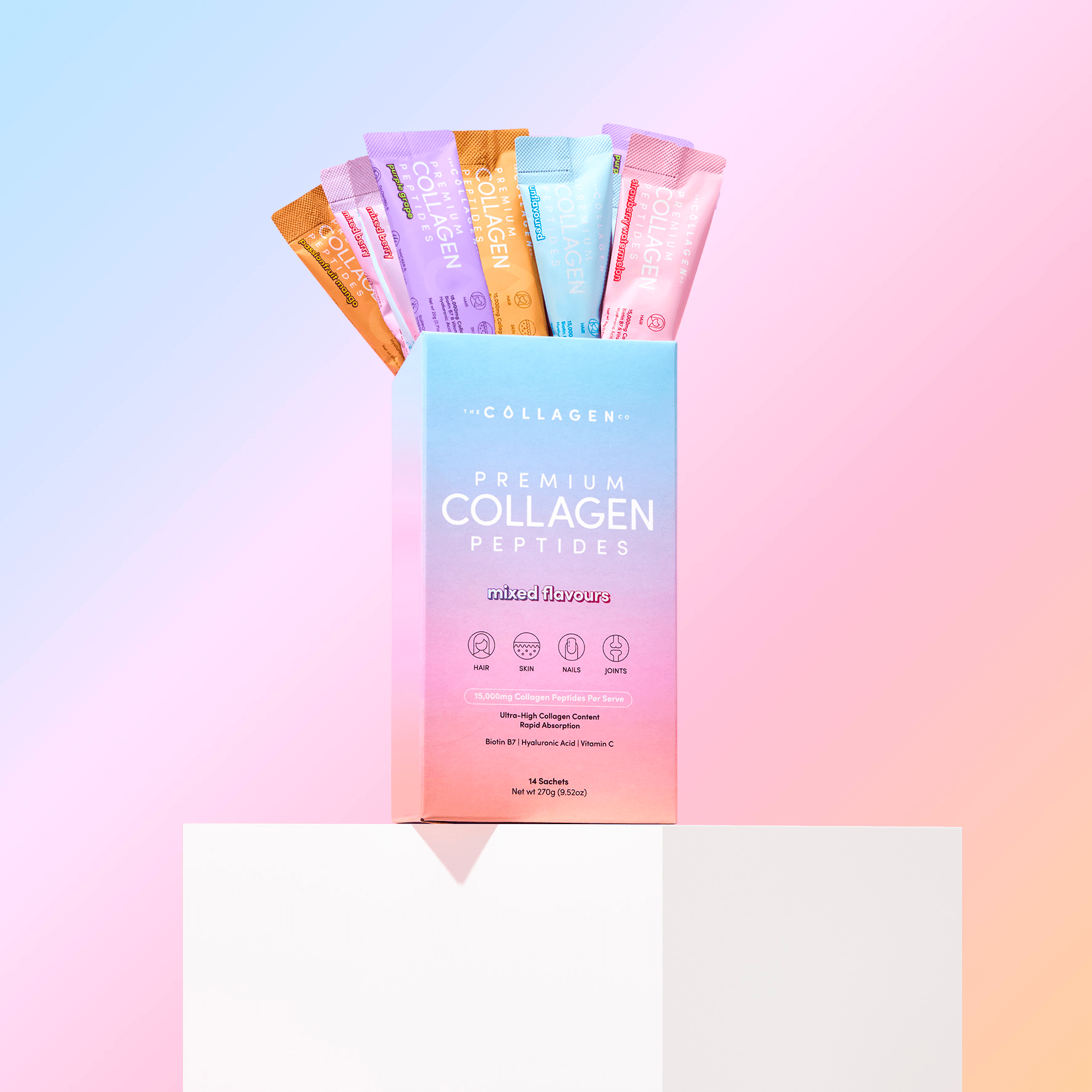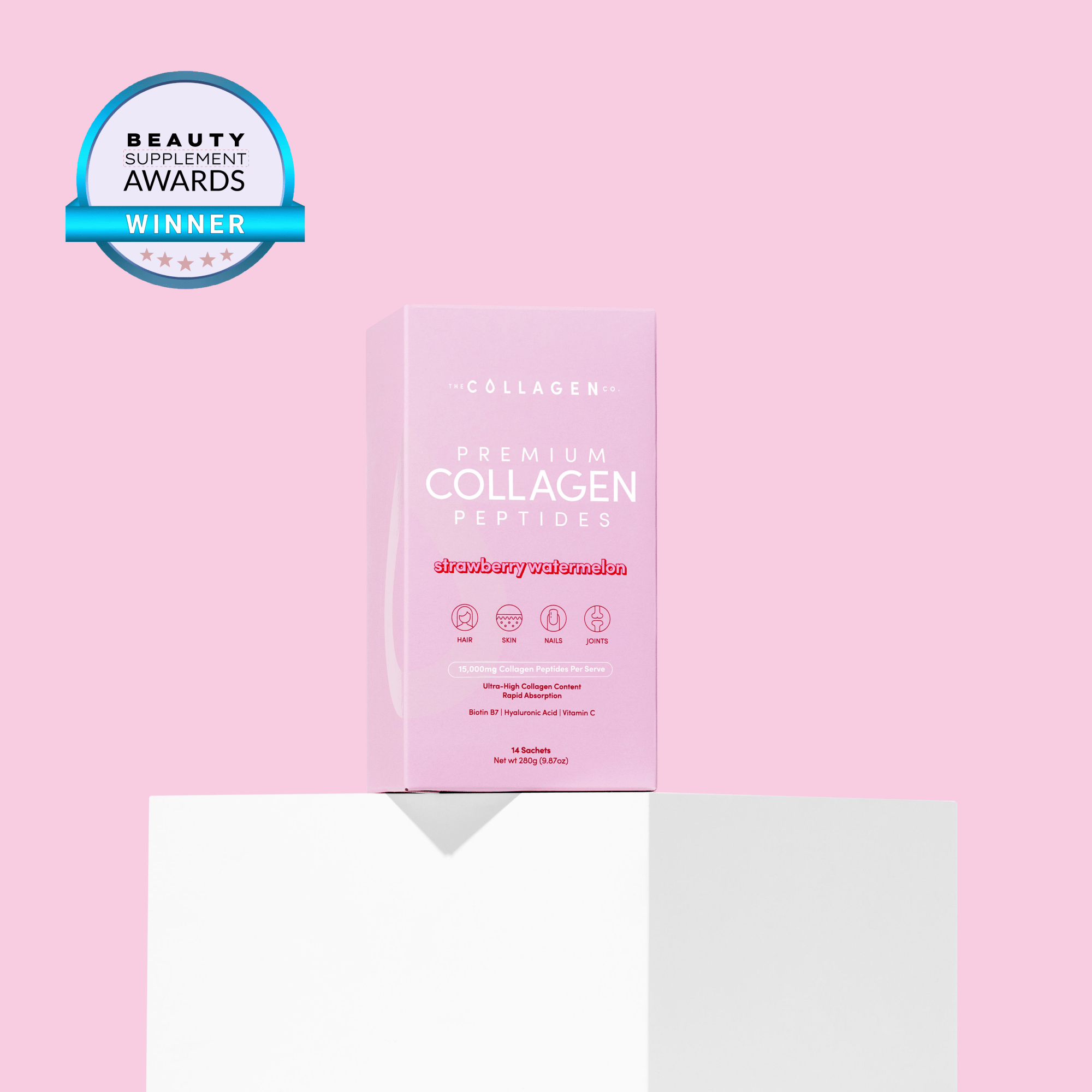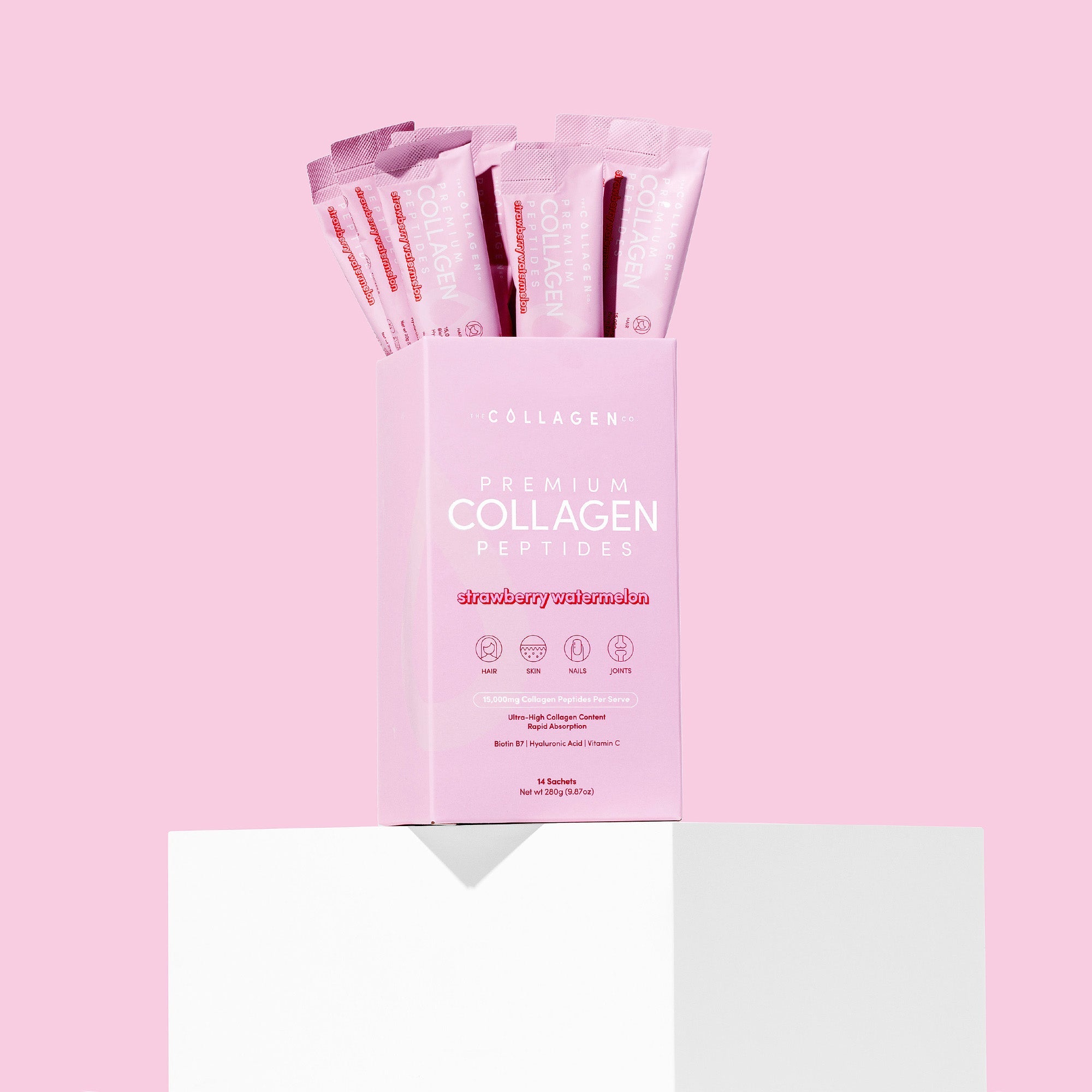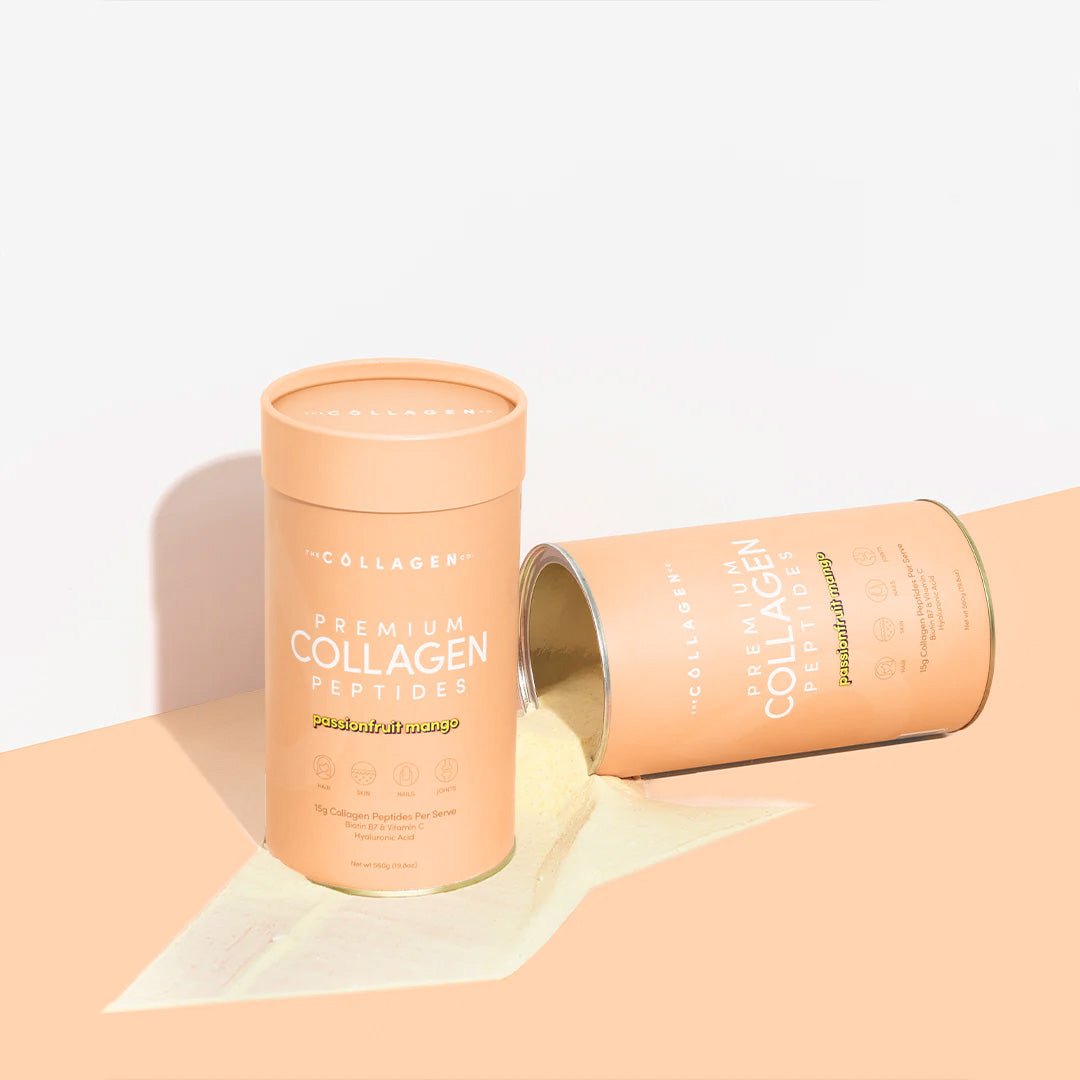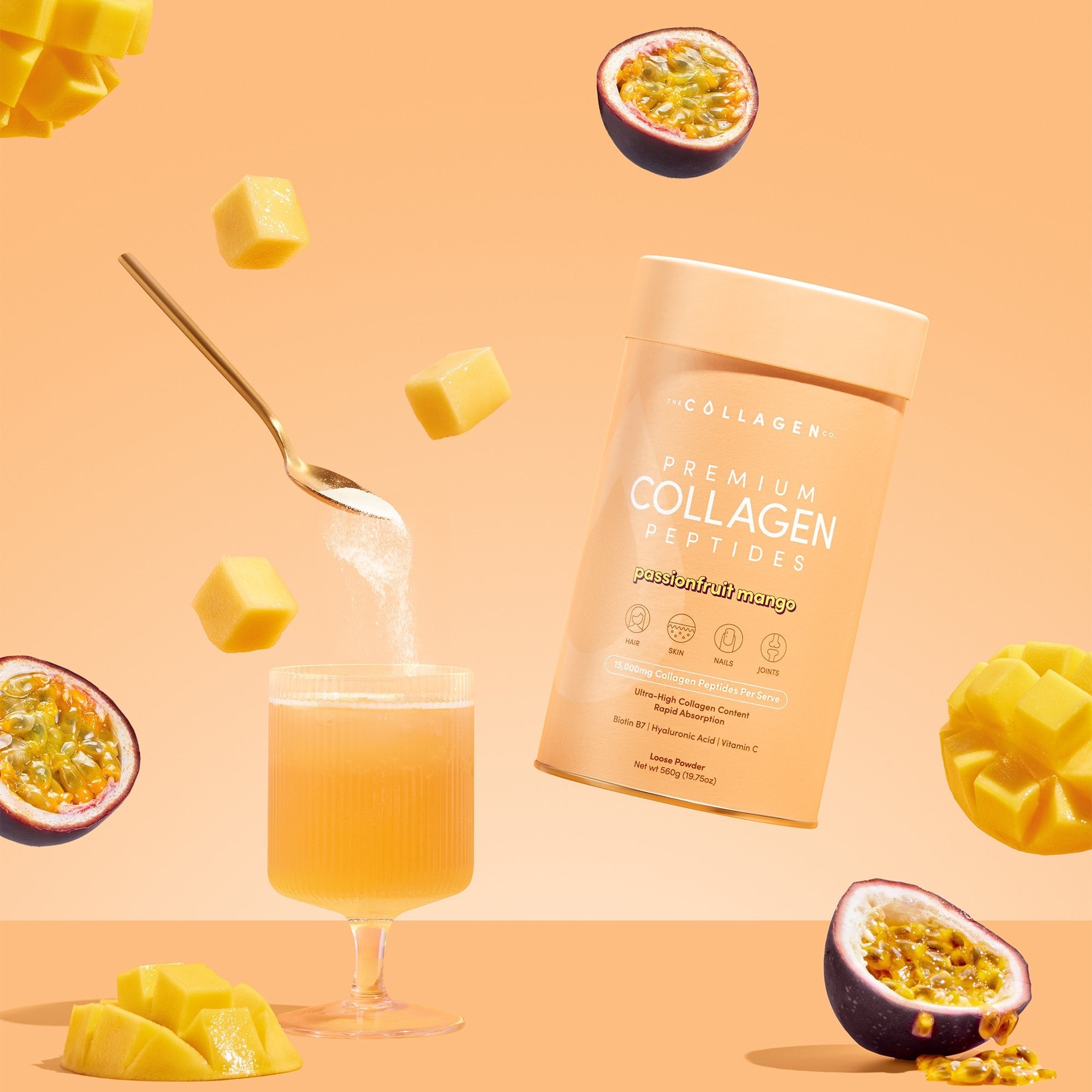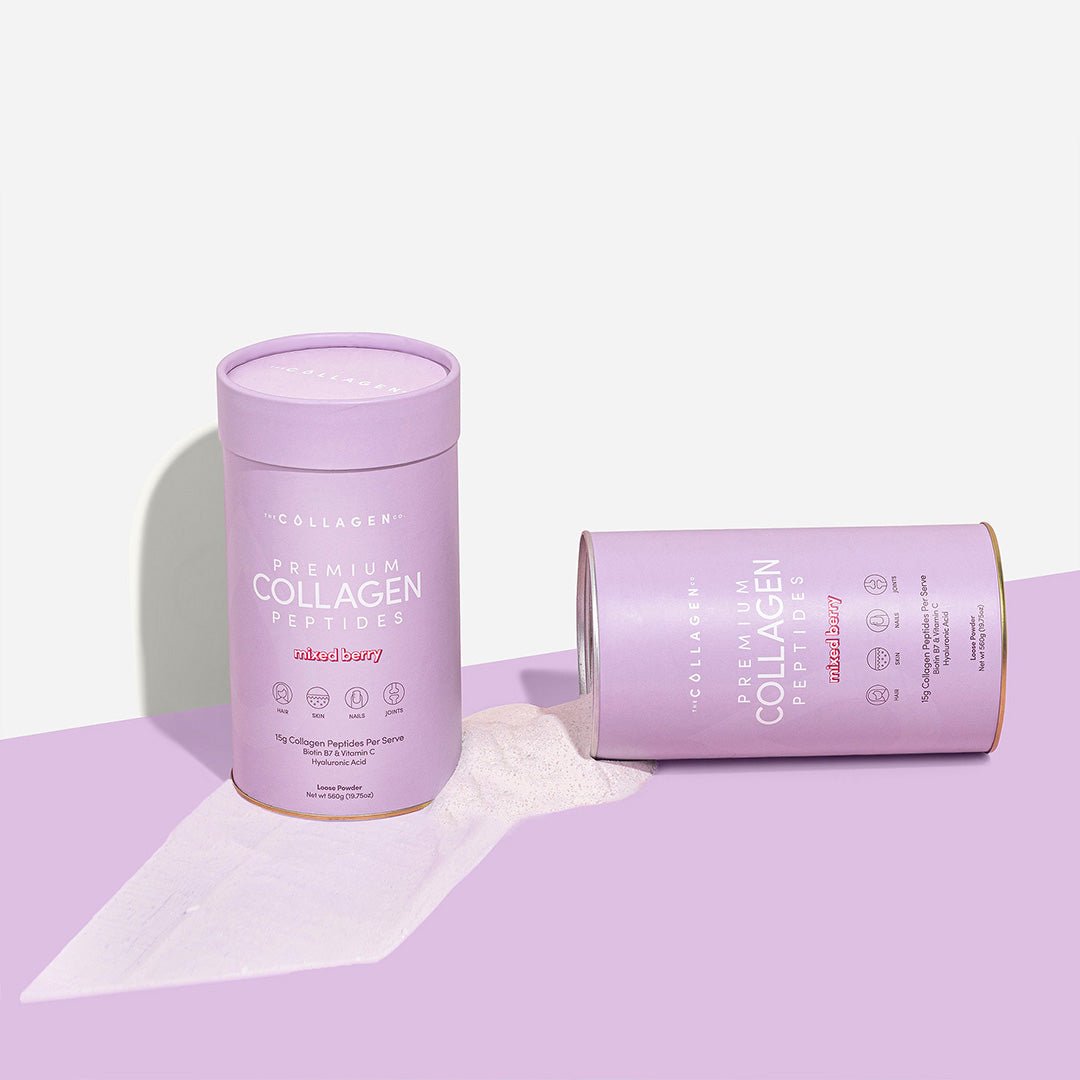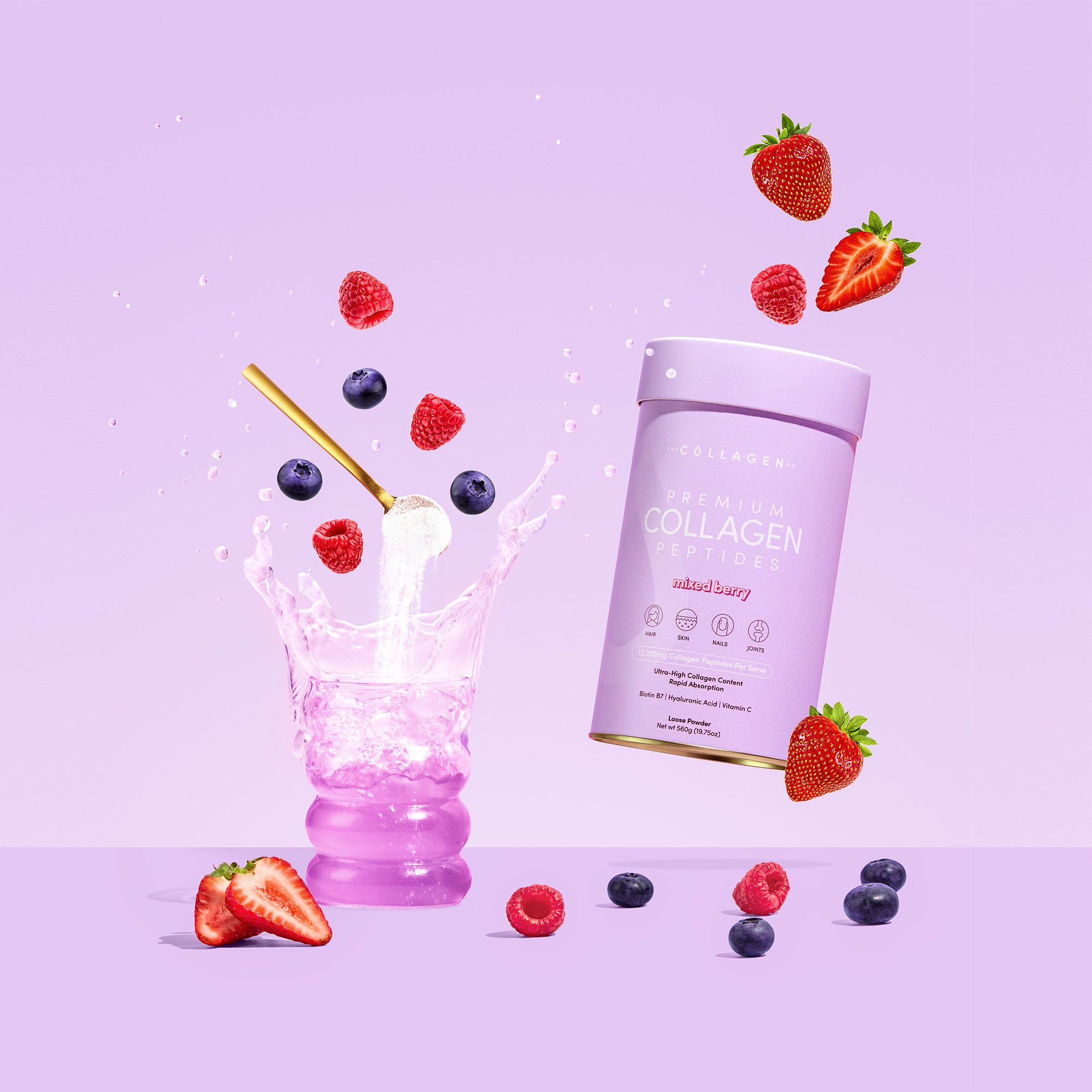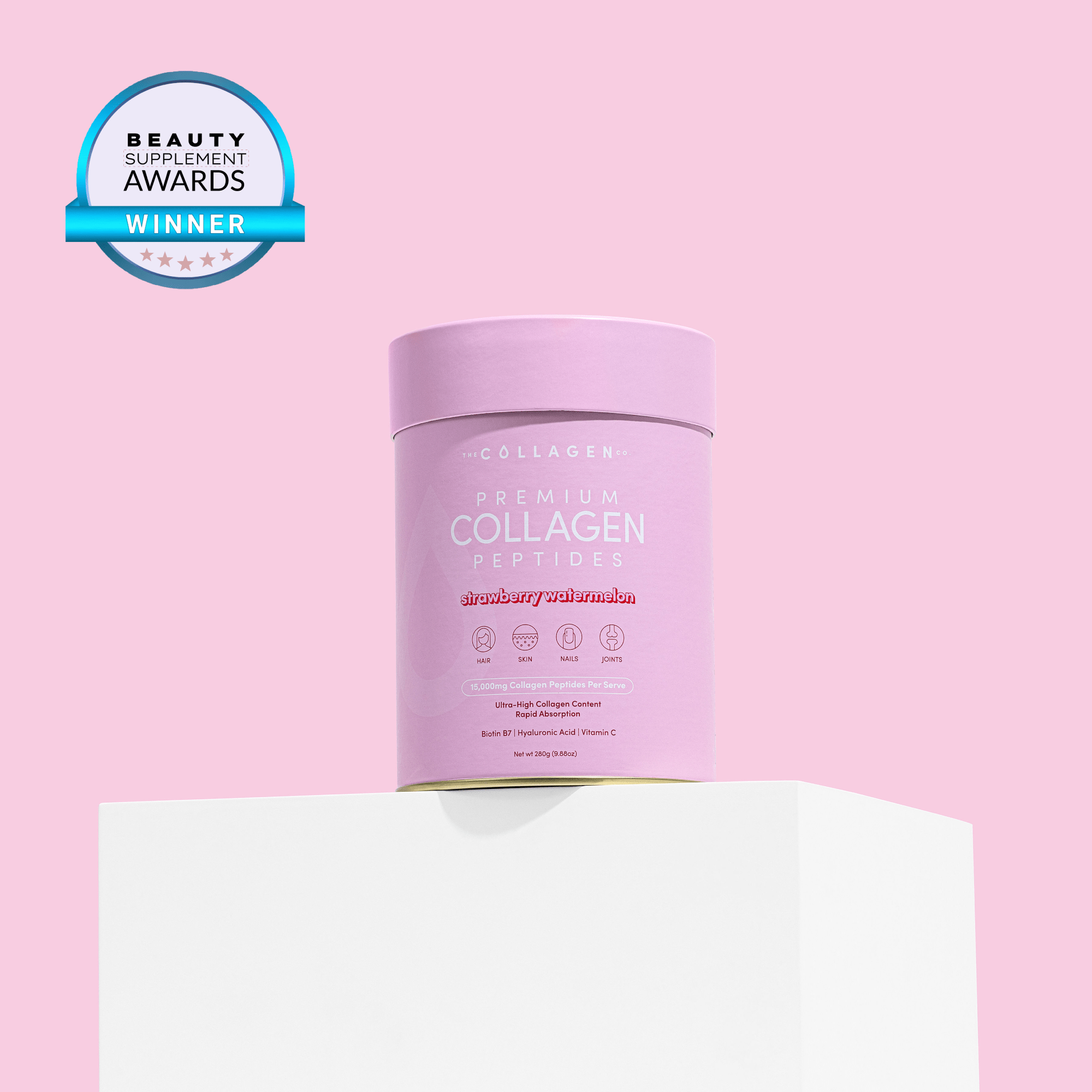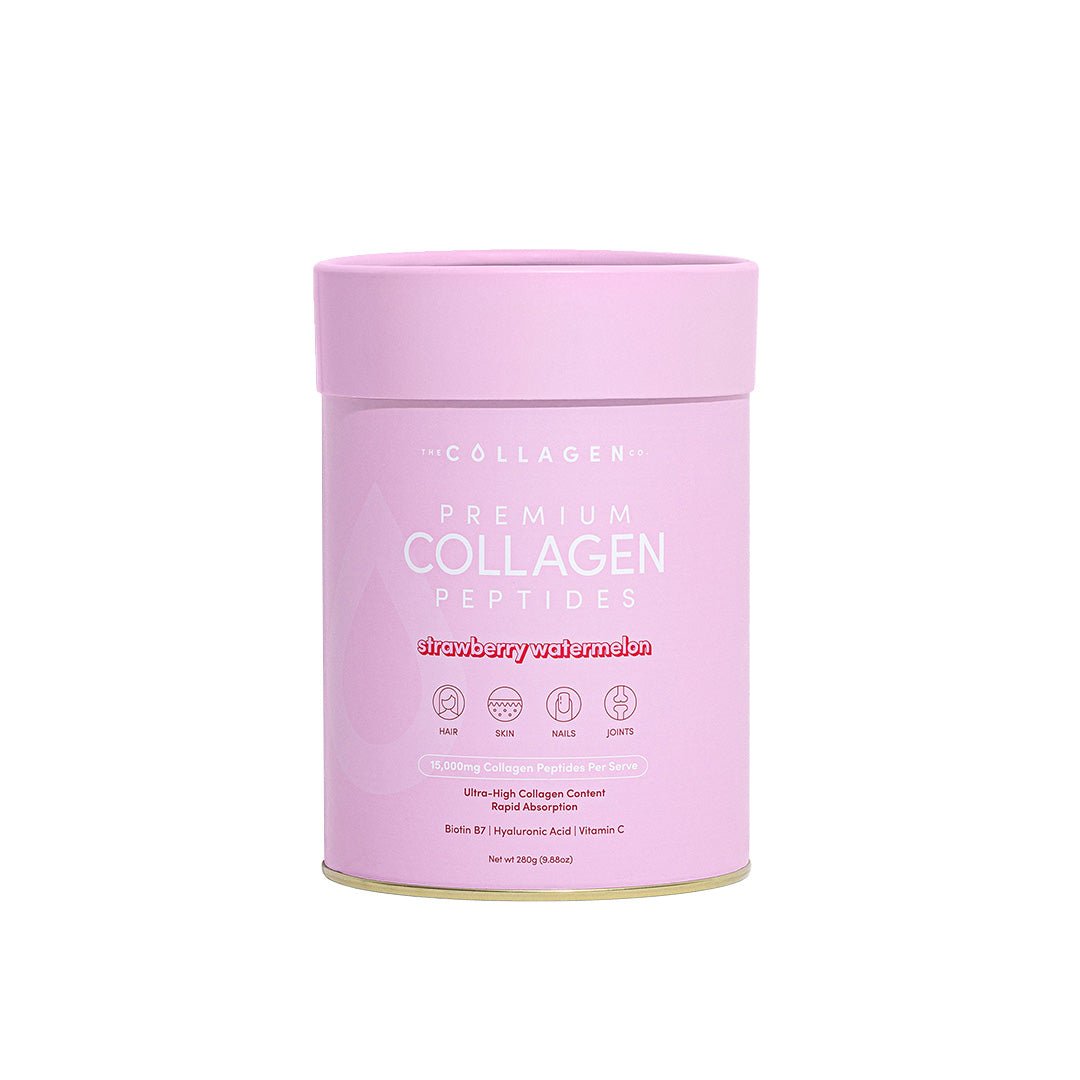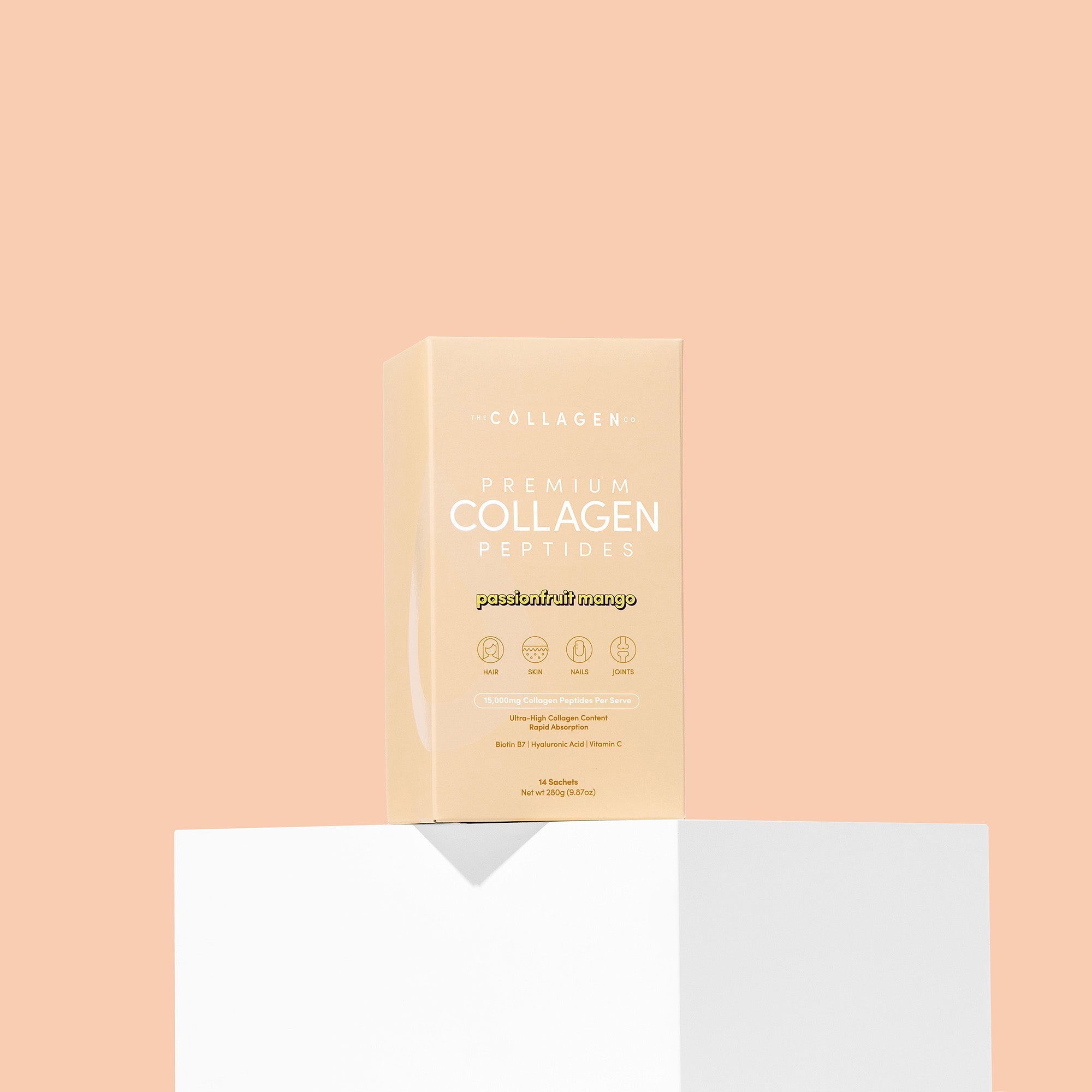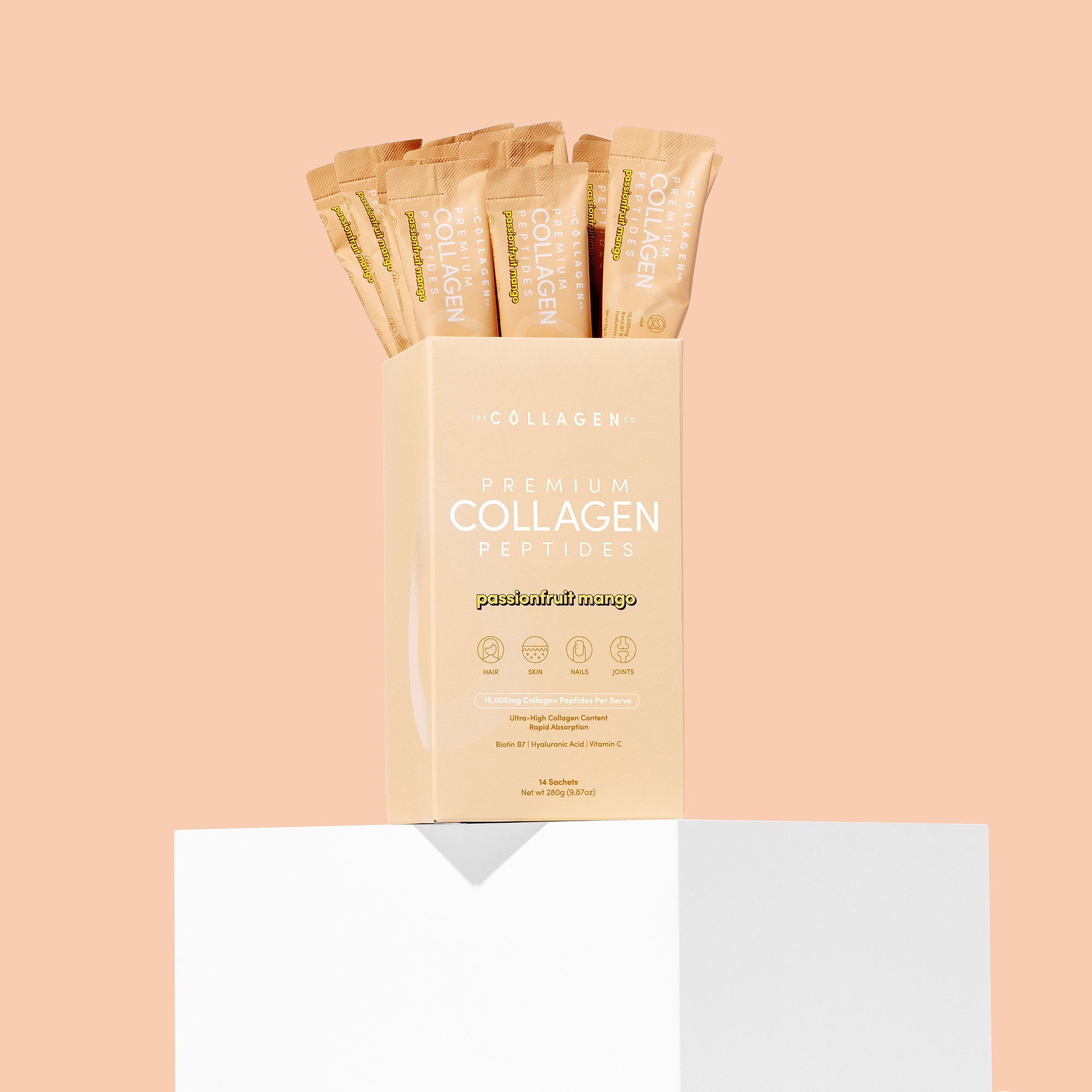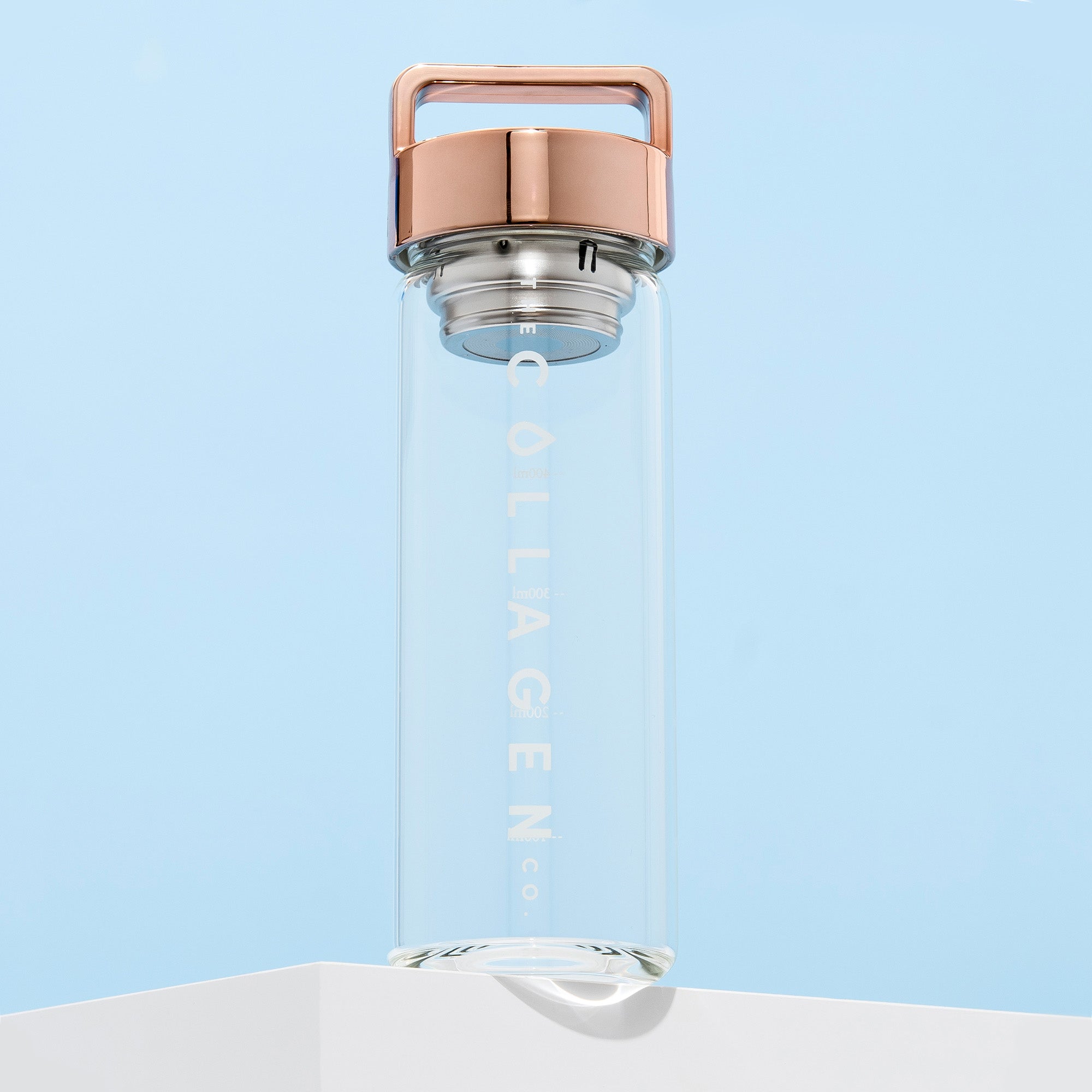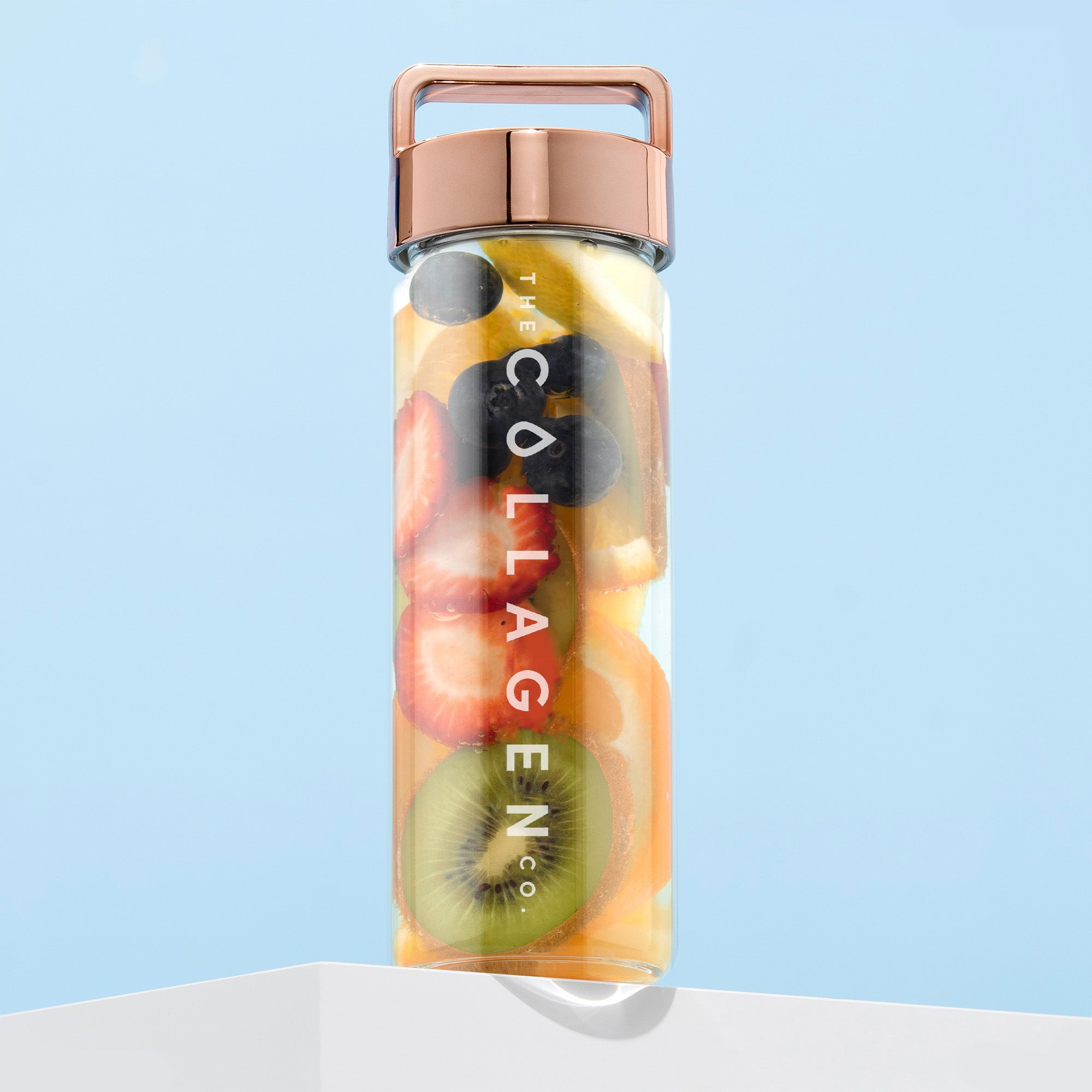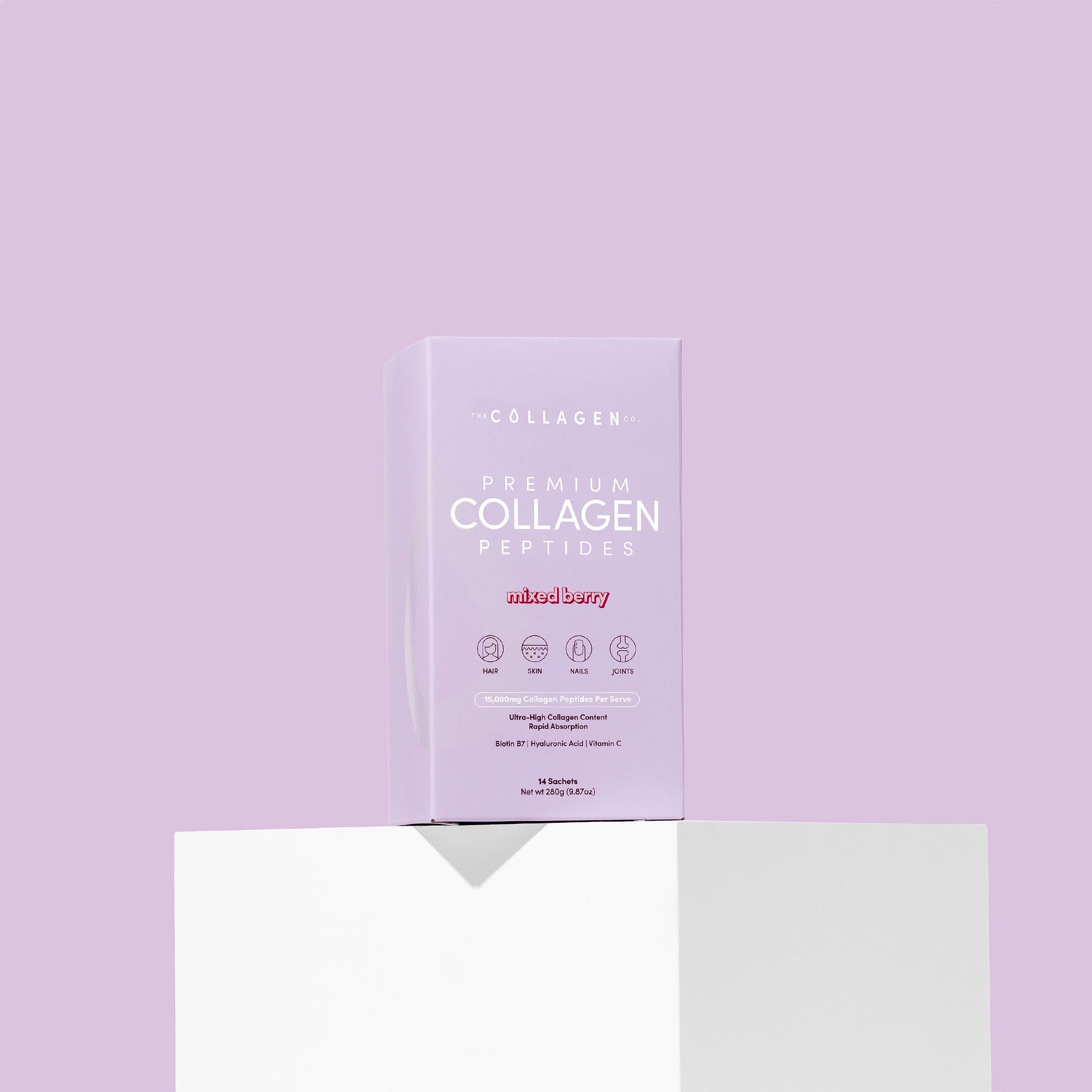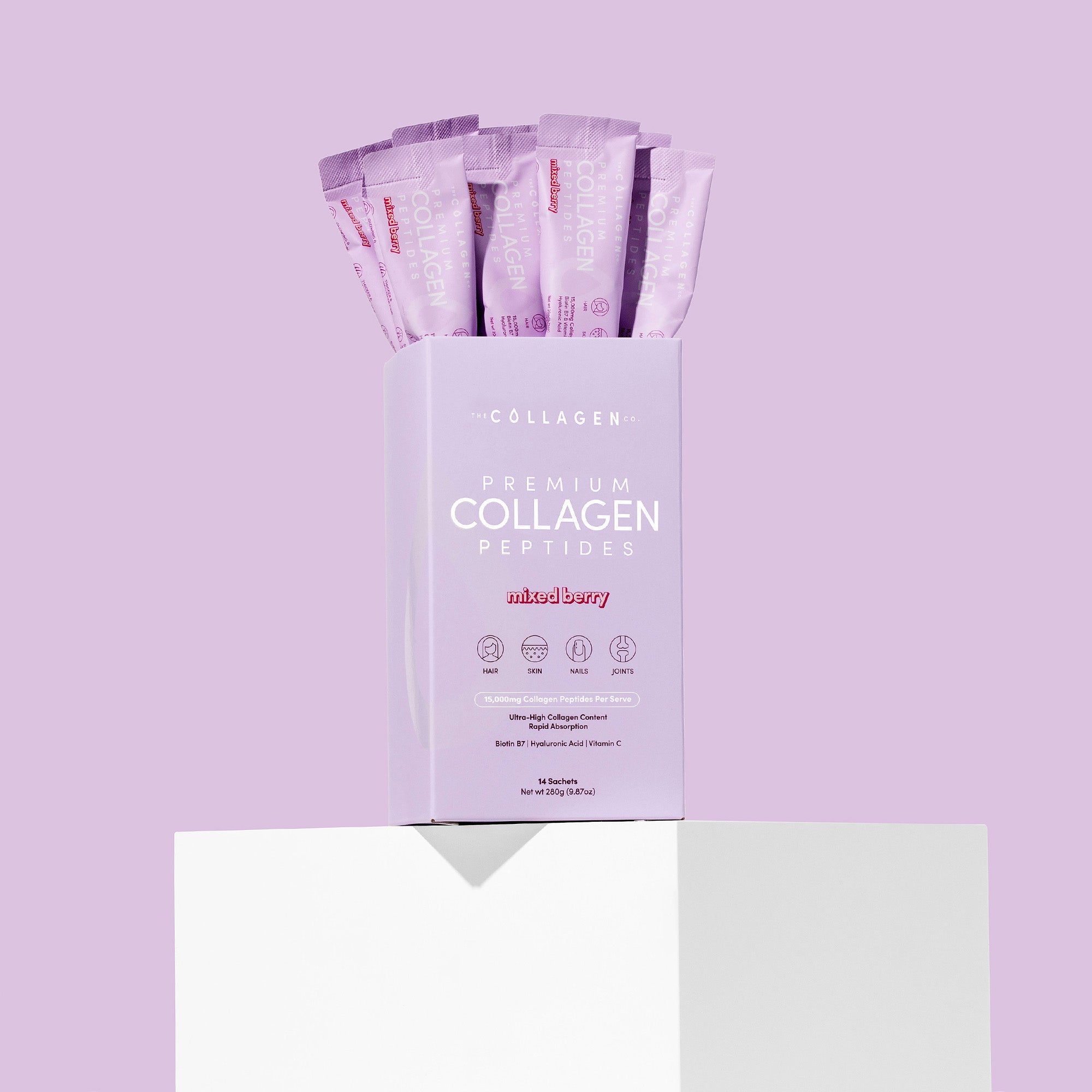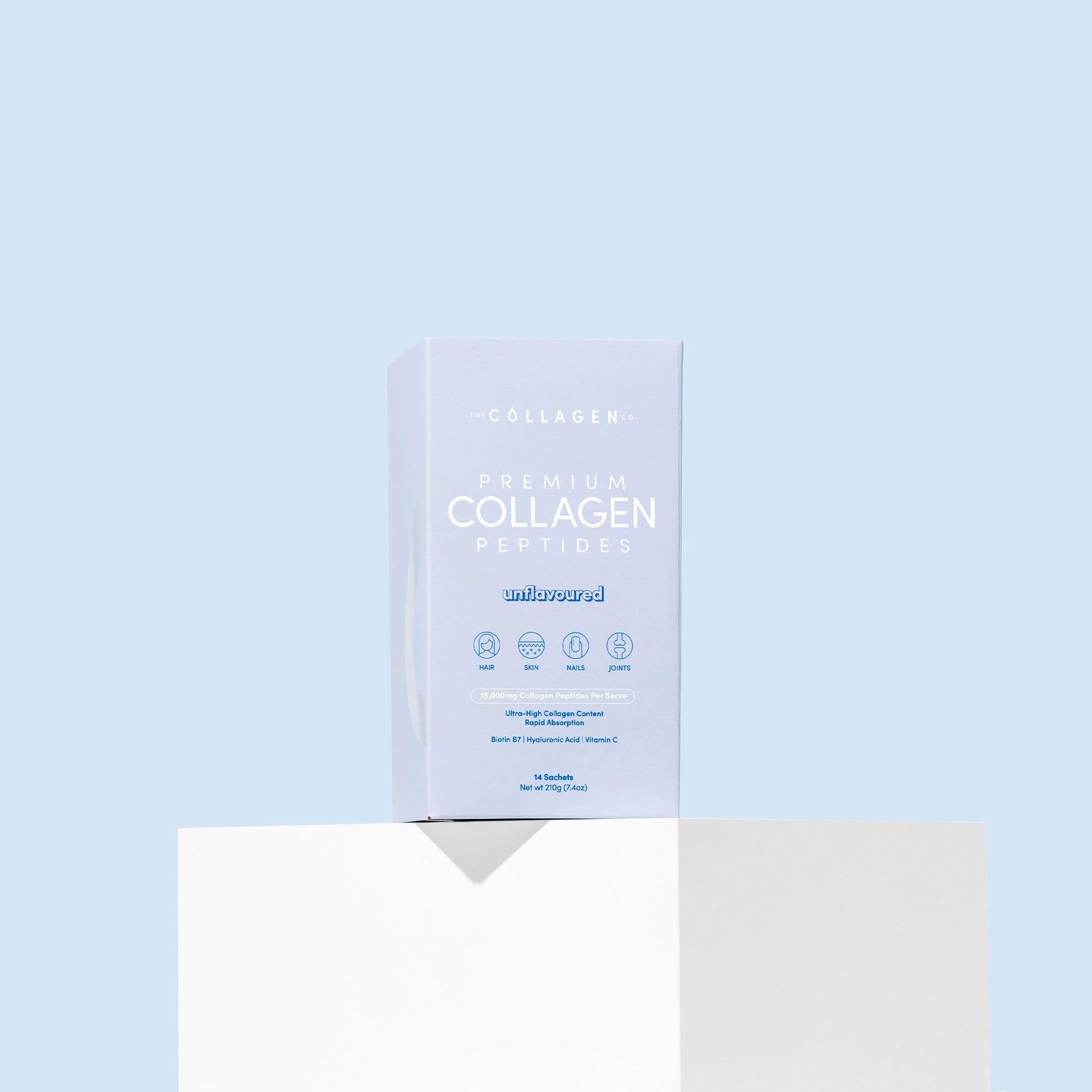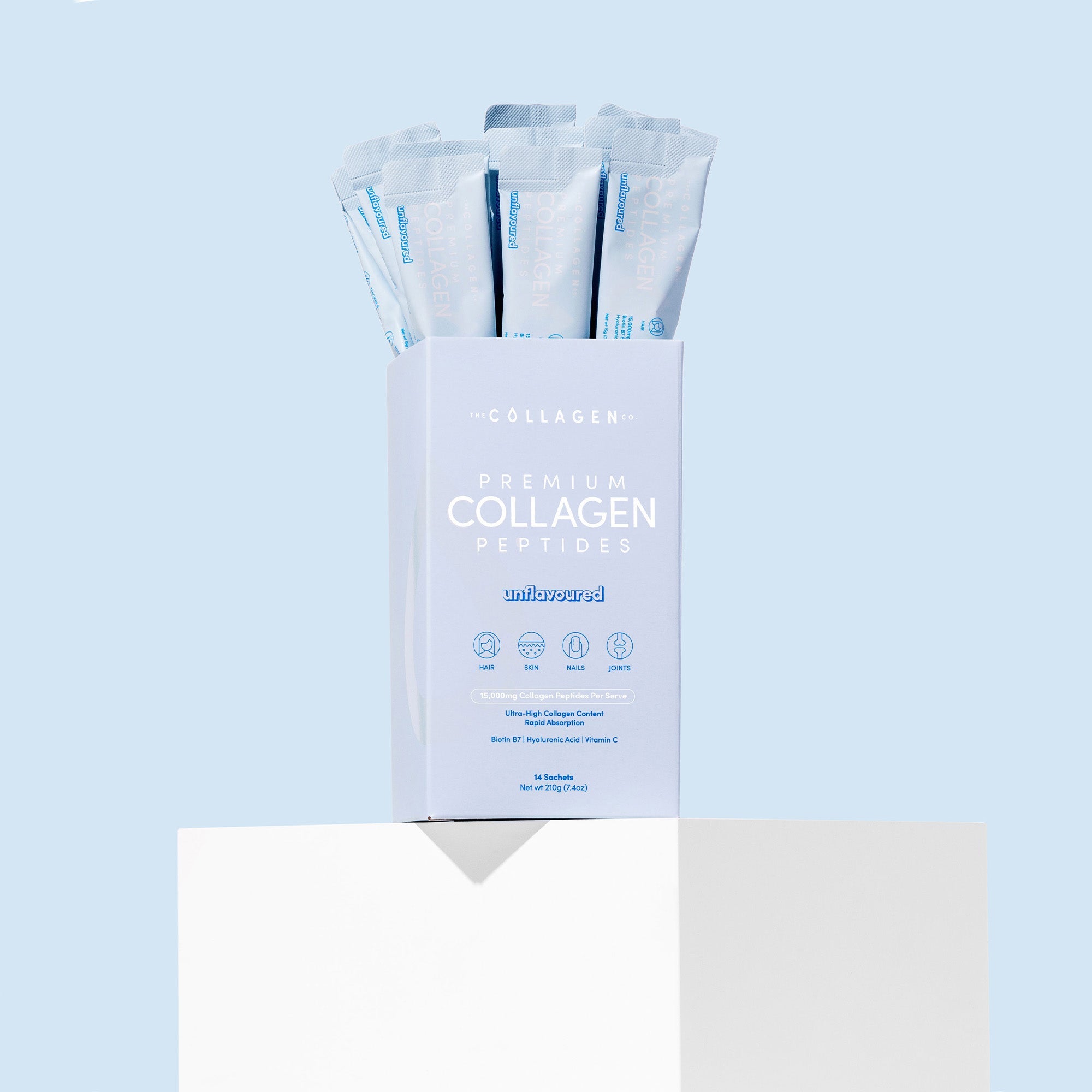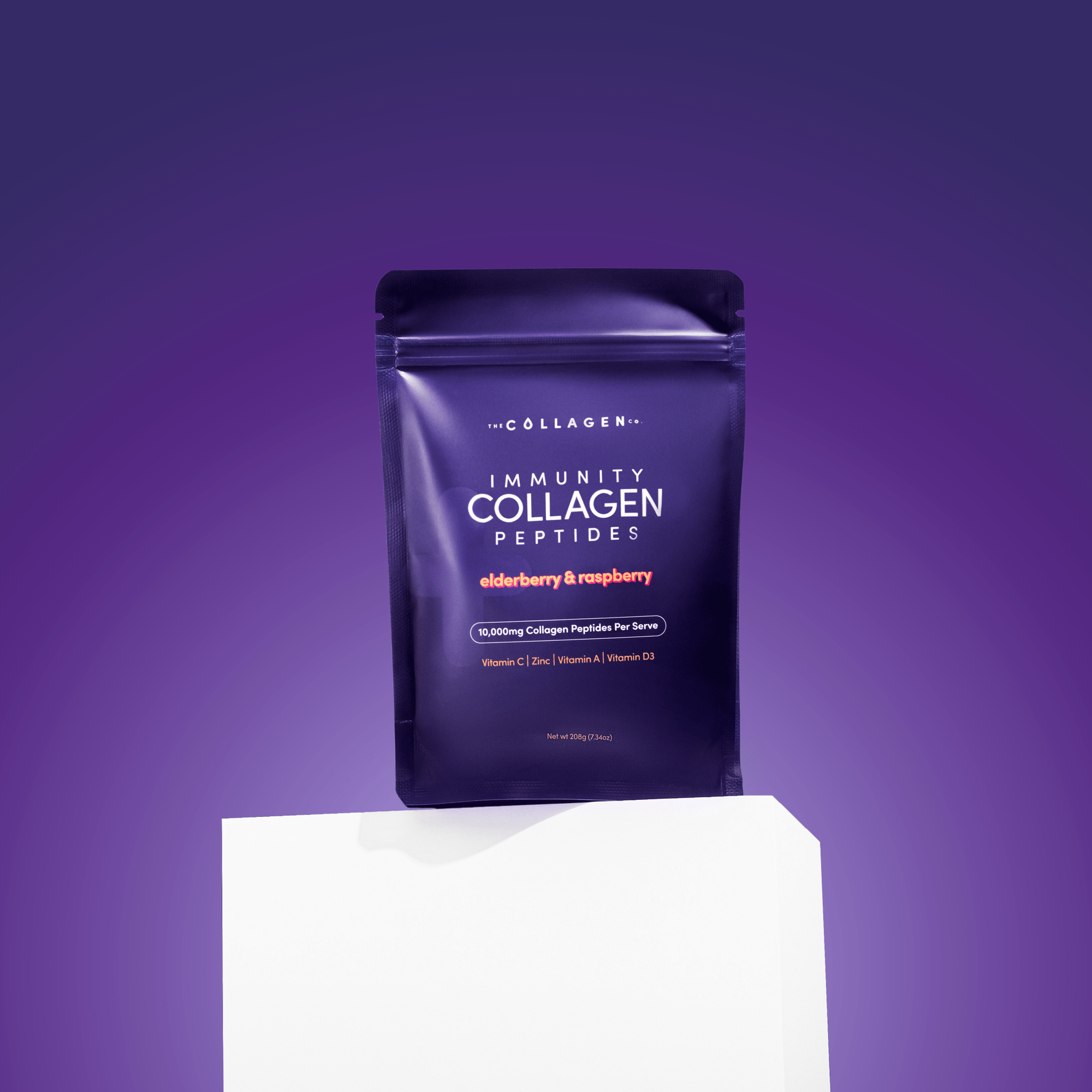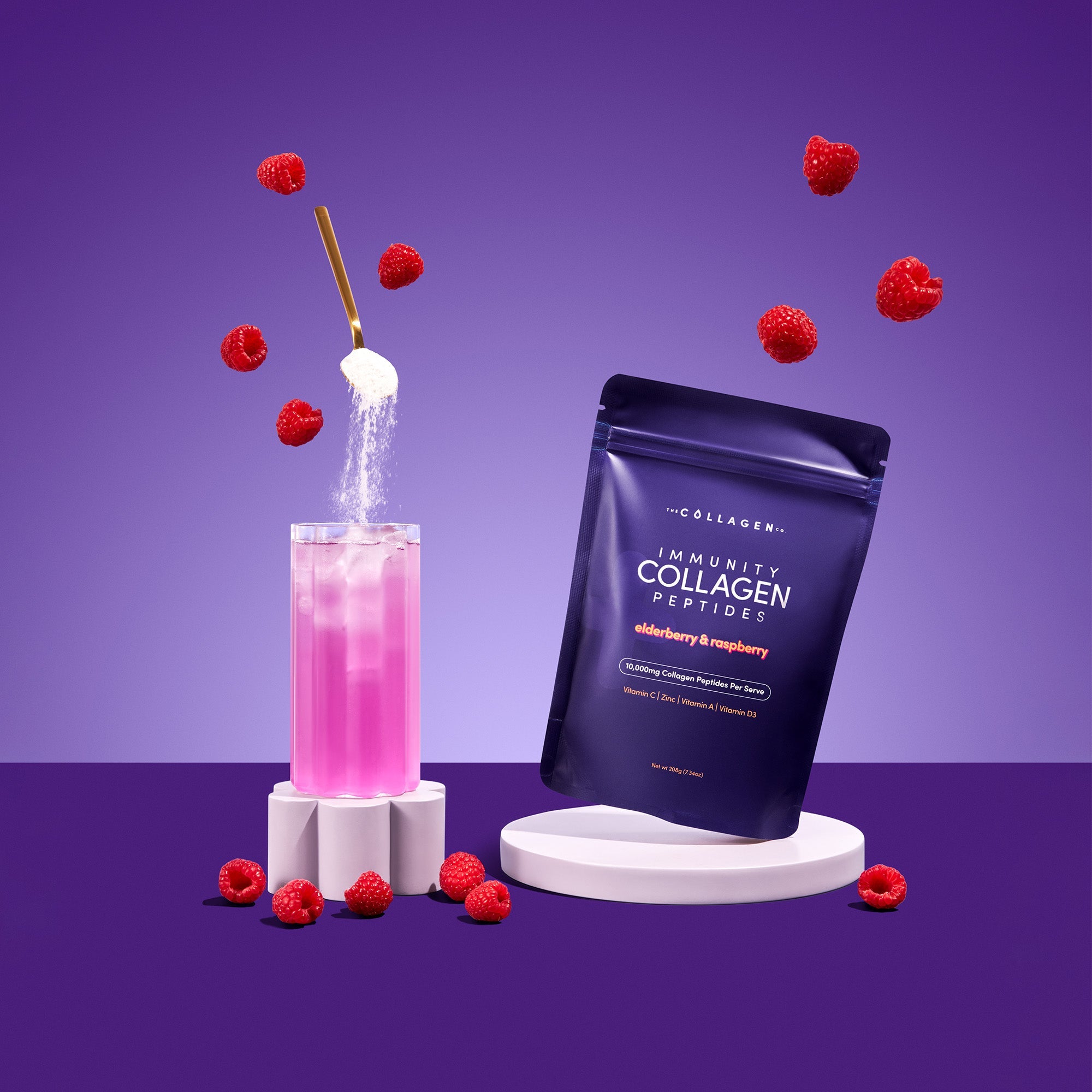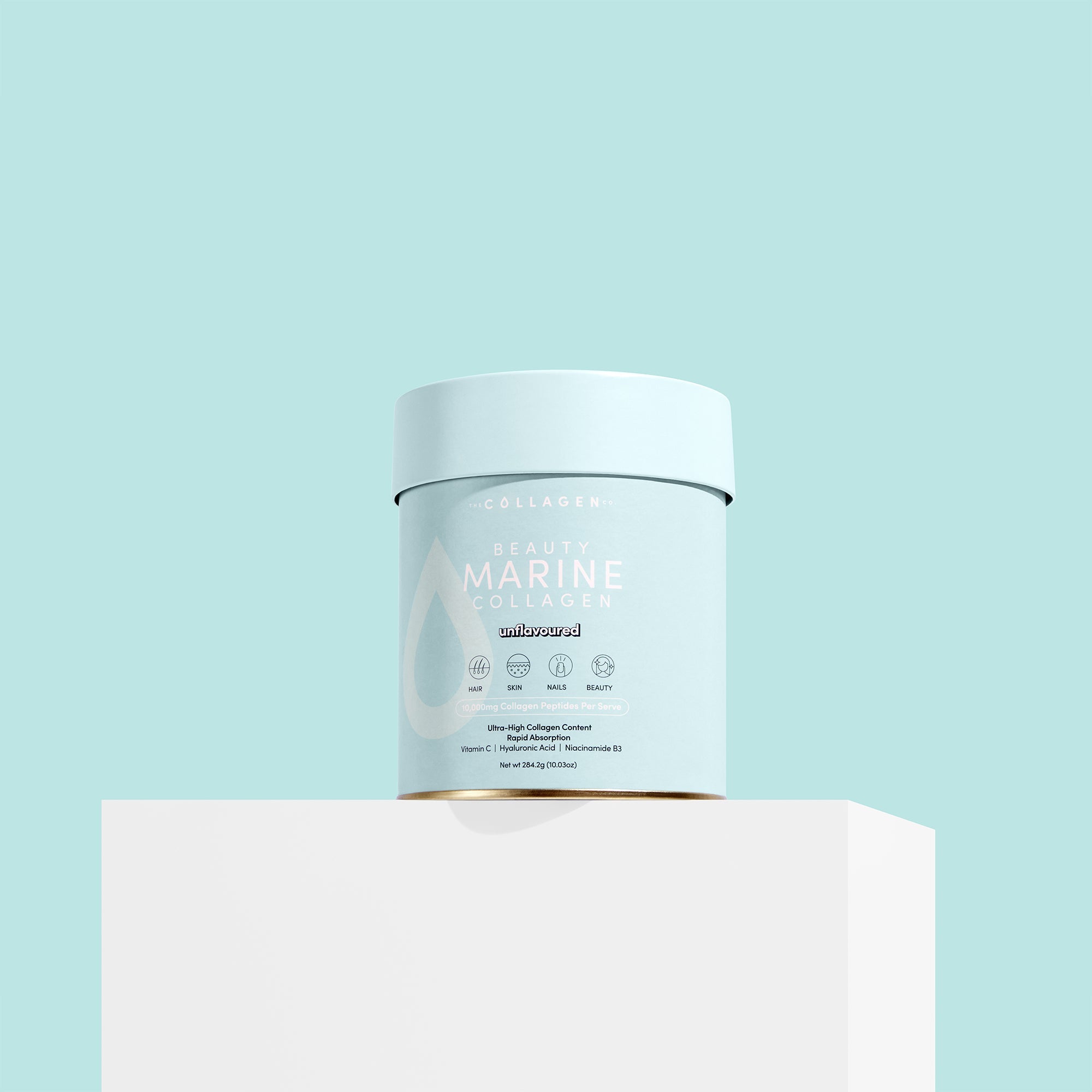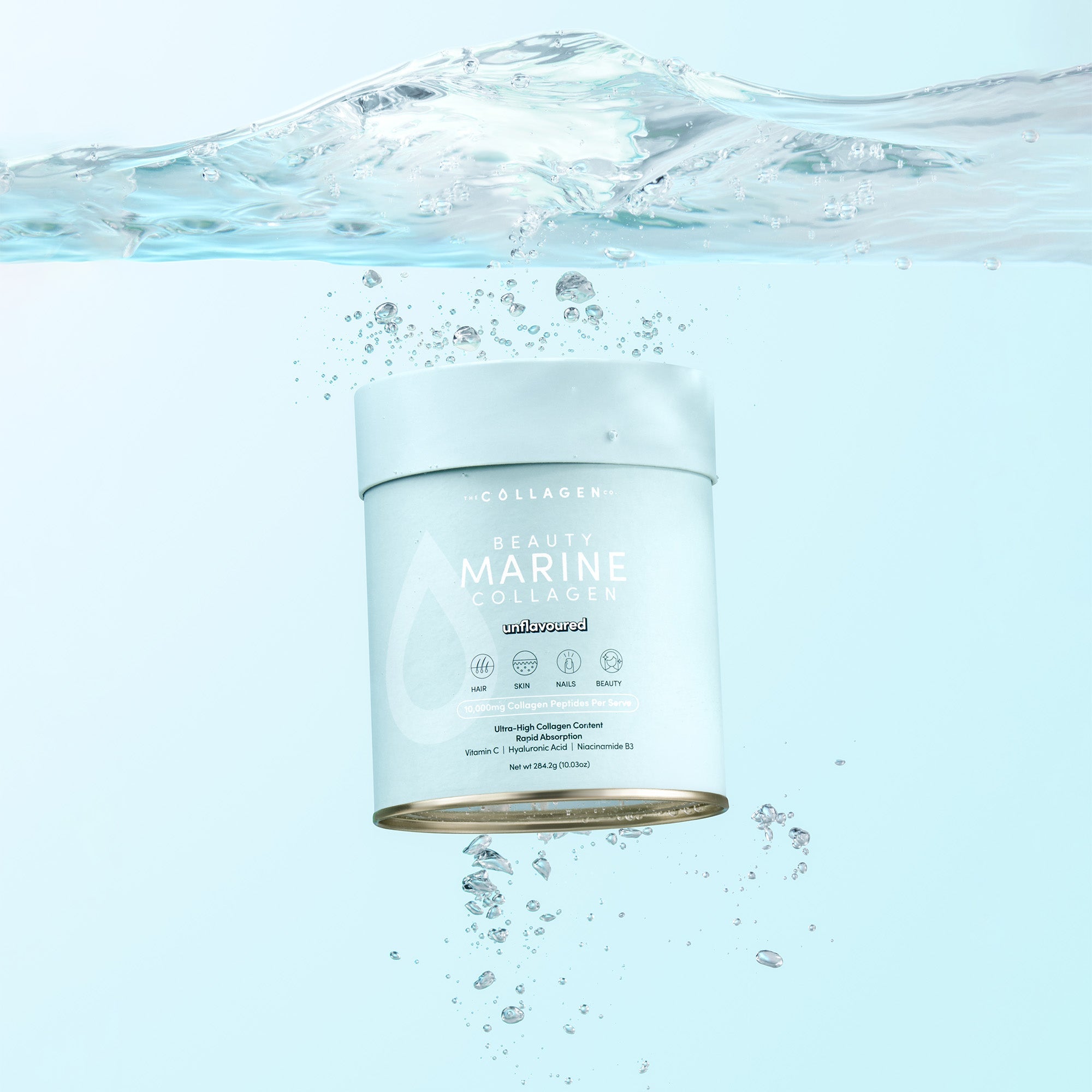When Do You Stop Producing Collagen Naturally?
Posted April 2022

Read anything related to collagen anywhere, and you’d have come across this sobering fact: with age, our body's natural production of collagen—the main structural protein that forms our connective tissues (skin, bones, muscles, tendons, and ligaments alike)—slows down, and we lose about 1% yearly, starting in our 20s.
And while the effects of this decline in collagen production are well-known, from saggy skin to lacklustre hair and nails to joint pain, the picture becomes hazier when it comes to the "why" part. In other words: what's driving this loss? Let’s find out.
What causes your collagen levels to decline?
Below, find the three primary causes of slowed-down collagen production.
#1: Age
You’re not going to like this, but your age—something you can’t control—is intrinsically linked to your body’s collagen production levels. The older you are, the less collagen your body makes. While researchers still aren’t quite sure why this is so, they’ve proposed two hypotheses:
- Poorer nutrient absorption: Age reduces your body’s ability to absorb various nutrients, including carbohydrates, lipids, and, most important of all in this context, proteins. And since amino acids (i.e., molecules making up protein) are the building blocks of collagen, this naturally means that your body can't produce as much of the latter as before.
- DNA mutations: The key to producing new collagen molecules lie in DNA replication. Unfortunately, the older you are, the more prone your body becomes to making mistakes with replicating DNA. Without diving into too many details, these errors could prevent cells crucial for collagen production (e.g., fibroblasts) from functioning properly, reducing your levels.
#2: Free Radicals
Sure, you can’t time-travel or turn back the clock. But you're not as helpless as you think you are. As it turns out, two lifestyle factors could exacerbate this natural decline (which means you could easily tweak them for higher collagen production levels—but more on that in a bit).
Let’s talk about the first: free radicals. For the uninitiated, free radicals are unstable atoms on a destructive course, determined to snatch electrons from any unsuspecting cells in their path through a process known as “oxidative damage”. And yep, your fibroblasts (reminder: these produce collagen) won’t be spared. The result is less collagen production.
But wait. What causes free radicals in the first place? There are two common “culprits”:
- UV exposure: Unprotected exposure to UV light (from the sun) is the leading cause of free radical formation in the skin. This, in turn, explains the well-documented link between UV exposure and collagen loss.
- Smoking: Beyond increasing your risk of numerous cancers (from mouth to lungs to stomach), cigarette smoke also speeds up the production of free radicals in your body. And we all know what this results in: a further dip in collagen production. Again, research is on the same page. Interestingly enough, this 2013 study on twins found that those who smoked had more wrinkles, crow’s feet, and facial lines than their non-smoking counterparts.
#3: Inflammation
The second lifestyle factor accelerating your natural collagen loss rate? Uncontrolled inflammation. More specifically, chronic inflammation is known to deteriorate both the structure and function of collagen. And as for what causes chronic inflammation, well, there are two things in particular:
- Eating an “inflammatory” diet: Diets high in simple carbohydrates (e.g., sugars) and processed meats (e.g., sausages) are known to promote widespread inflammation throughout the body. This, in turn, interferes with collagen production.
- Poorly managed stress levels: Stress is pro-inflammatory. Worse still, stress also increases cortisol—a hormone known to decrease the production of collagen—levels.
How to support collagen production
Although you cannot stop yourself from getting older, you can make certain lifestyle changes to slow down your natural collagen loss rate. Examples include diligently applying sunscreen, giving up smoking, building your diet around minimally processed, nutritious-dense foods (e.g., complex carbohydrates, lean sources of proteins, fruits, and vegetables), and practising stress management techniques, like exercise, meditation, and even mindful journaling.
Oh, and of course, you can also "replenish"—and boost—your collagen stores with collagen supplements. Just be sure to pick one that's hydrolysed (i.e., broken up into smaller chains of collagen peptides) for easy absorption. Psst: not sure where you can find a high-quality, efficacious collagen supplement? Your search ends here with The Collagen Co. Our glowing reviews will convince you.
